When it comes to addressing employee performance issues, crafting a thoughtful letter is crucial for clear and constructive communication. It's important to strike the right balance between professionalism and empathy, ensuring that the employee understands the gravity of the situation while also feeling supported in their journey to improve. In this article, we'll explore an effective letter template to help you navigate this sensitive conversation, providing clear expectations and potential paths for development. So, if you're ready to learn how to foster better workplace performance, keep reading!

Clear statement of the issue
Insufficient adherence to company policies regarding attendance has led to a recurring pattern of unexcused absences. During the past month, the employee missed five workdays without prior notification or justifiable reason, which breaches the attendance guidelines outlined in the employee handbook. Such behavior adversely affects team productivity and disrupts project timelines, causing stress among other team members who must compensate for these absences. Consistent attendance is not only essential for operational efficiency but is also a fundamental expectation of all employees within the organization.
Specific examples of behaviors or incidents
Repeated tardiness during work hours at the company headquarters has been noted, with instances recorded on September 5th, September 12th, and September 19th, resulting in disruptions to team meetings and project timelines. Failure to complete the assigned tasks for the quarterly report due by October 10th has occurred, impacting the department's overall performance metrics. Poor communication with colleagues has been observed, including a lack of timely responses to emails regarding urgent projects, which hinders collaborative efforts. Additionally, there were instances of not adhering to established safety protocols during the warehouse inspection on October 2nd, putting both personal safety and the well-being of others at risk.
Reference to company policies or standards
Performance warnings serve as crucial reminders for employees about adherence to company policies and standards, which are essential for maintaining a productive work environment. An employee's failure to meet performance expectations can disrupt workflows and affect team morale, especially in organizations that prioritize collaboration and efficiency. A formal warning outlines specific areas of concern, such as tardiness, unfulfilled job responsibilities, or inadequate quality of work. Reference citations to documented company policies--such as the employee handbook or code of conduct--further underscore the seriousness of the situation. These standards often detail the expected behaviors and performance criteria, offering clear guidelines for employees to follow. A performance warning not only serves as notification but also outlines the necessary steps for improvement, fostering personal accountability and professional growth within the organization.
Steps for improvement and support offered
Employee performance warnings highlight necessary steps for improvement and the support available to facilitate this process. Clear communication of expectations and specific performance metrics are crucial, such as meeting project deadlines, achieving sales targets of 10% increase quarterly, or maintaining quality standards of 95% customer satisfaction ratings. Documentation of prior performance discussions and objectives, alongside an outlined timeline for improvement, ensures accountability. Support mechanisms, including training sessions, mentorship from senior staff, and access to resources like online courses related to skill enhancement, play a vital role in allocating the right tools for success. Additionally, regular follow-up meetings every two weeks can help track progress and address challenges while fostering an open dialogue for feedback.
Potential consequences if issues persist
An employee performance warning outlines potential consequences if performance issues continue to affect the workplace. Consistent underperformance, such as not meeting sales targets (e.g., missing quarterly goals by over 20%), can lead to significant ramifications. Companies may implement formal disciplinary procedures, potentially culminating in suspension or termination, especially if performance does not improve within a specified timeframe, typically 30 to 90 days. Additionally, the inability to meet job expectations can also affect salary reviews, promotions, and eligibility for bonuses, diminishing overall career advancement opportunities within the organization.

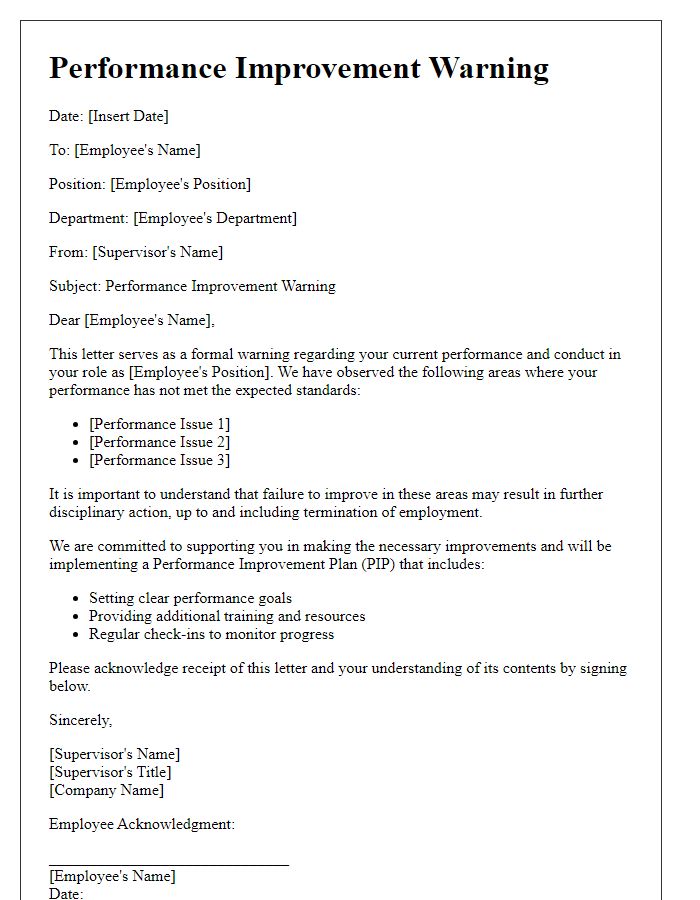
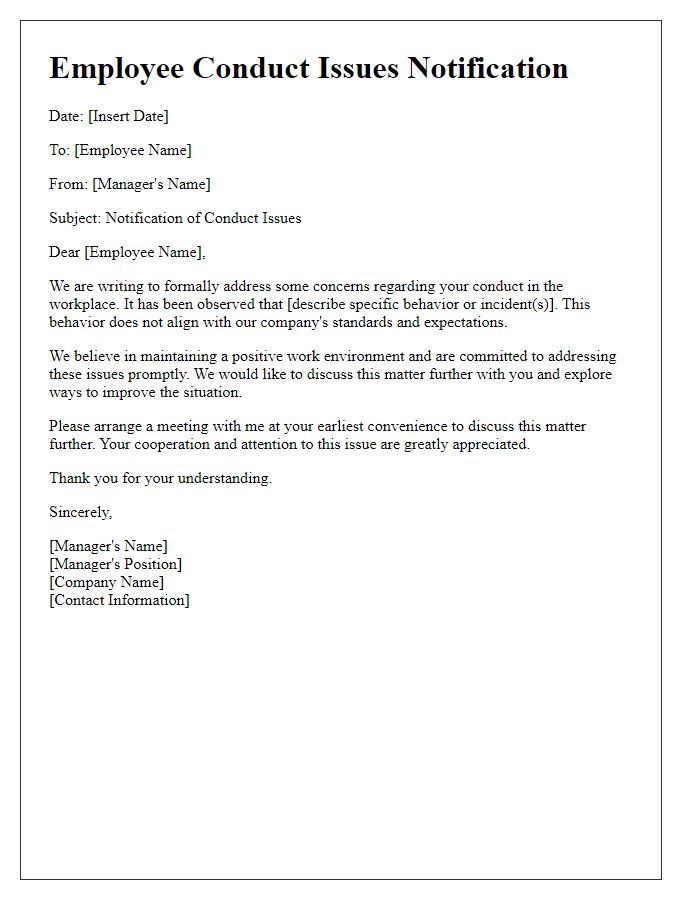
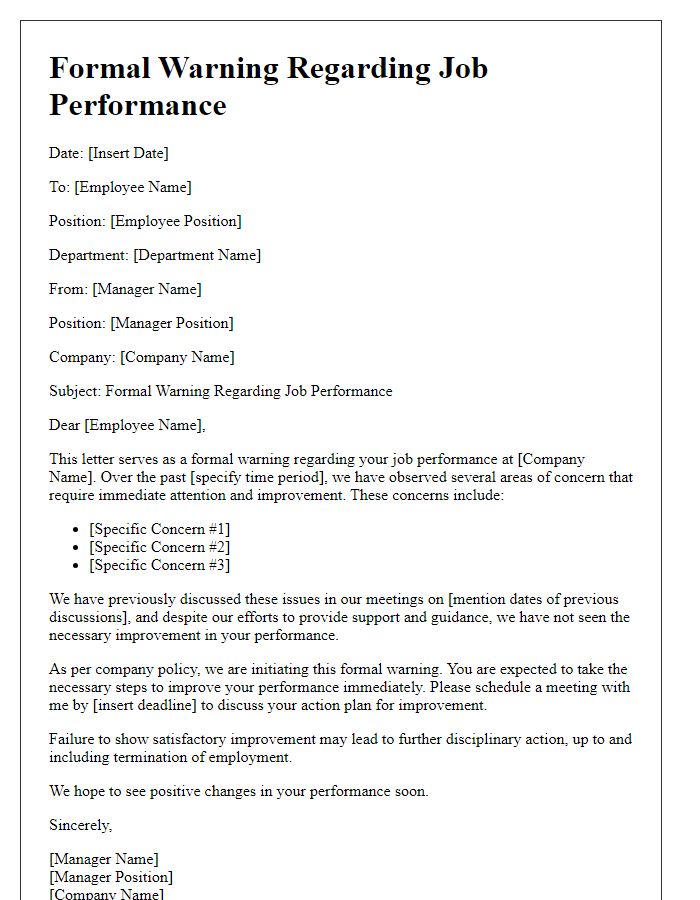
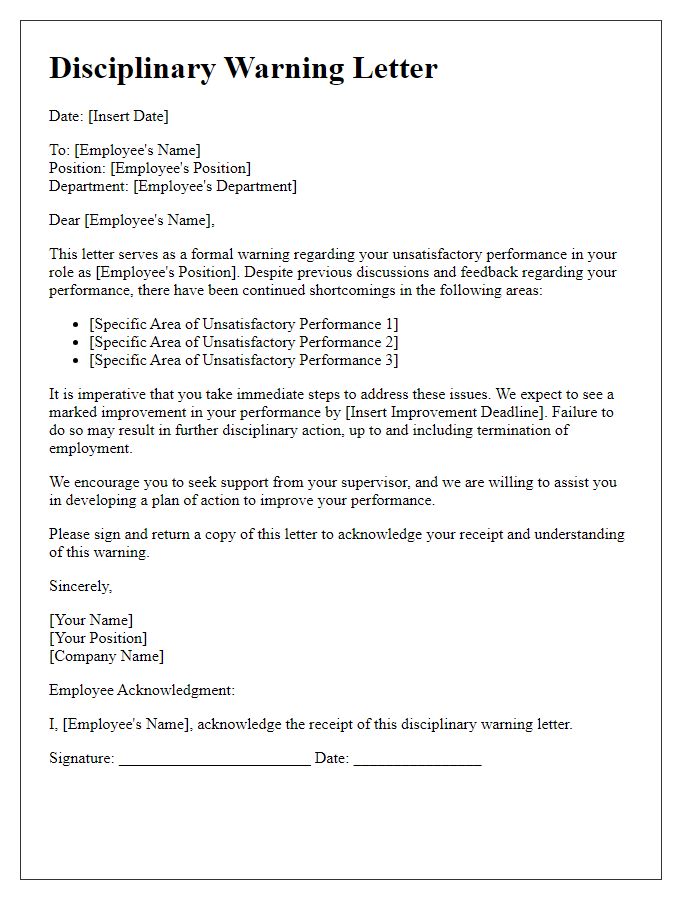
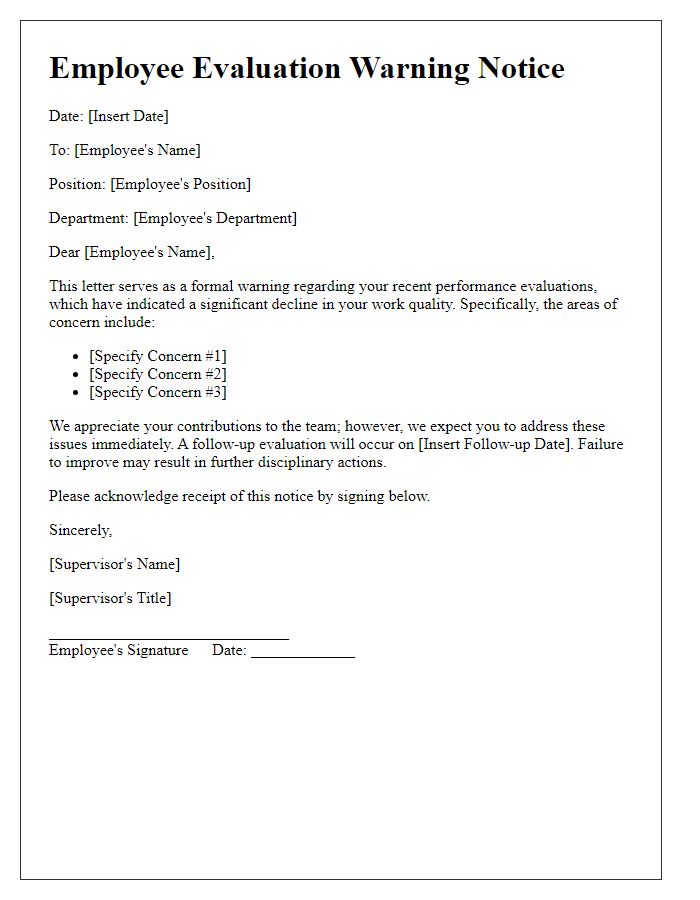
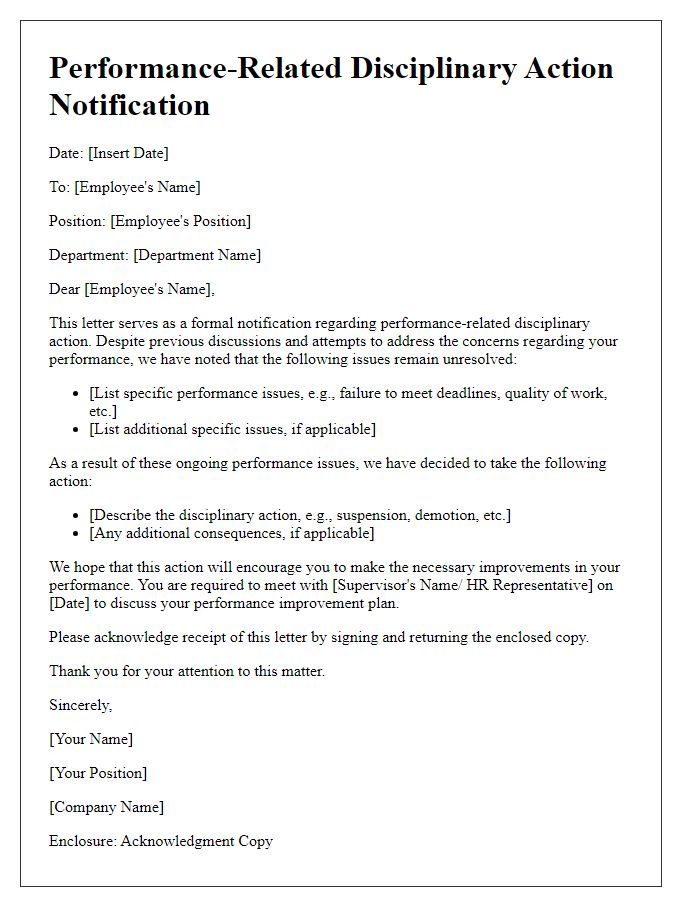
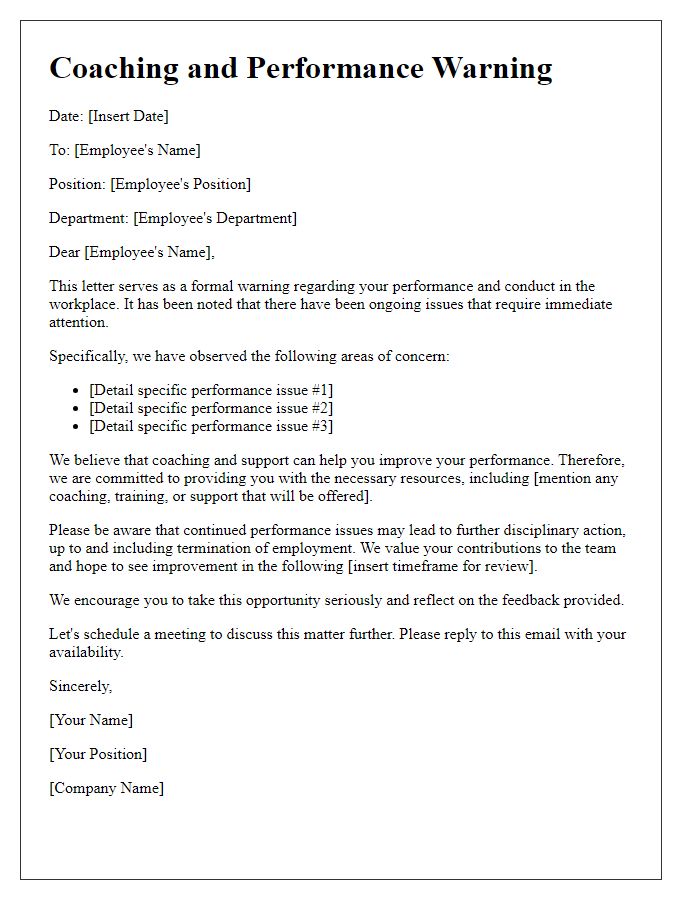
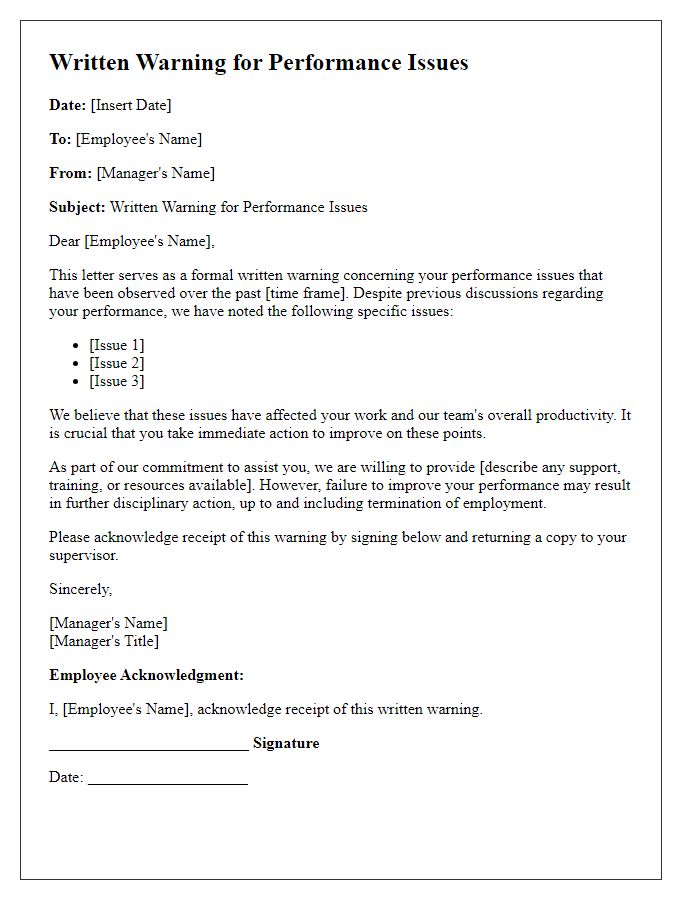
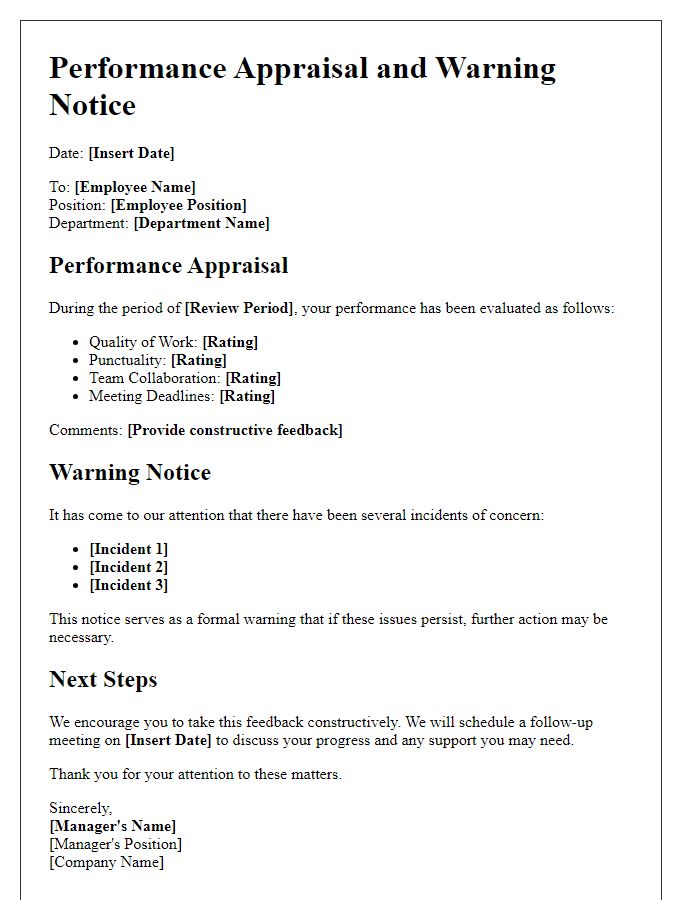
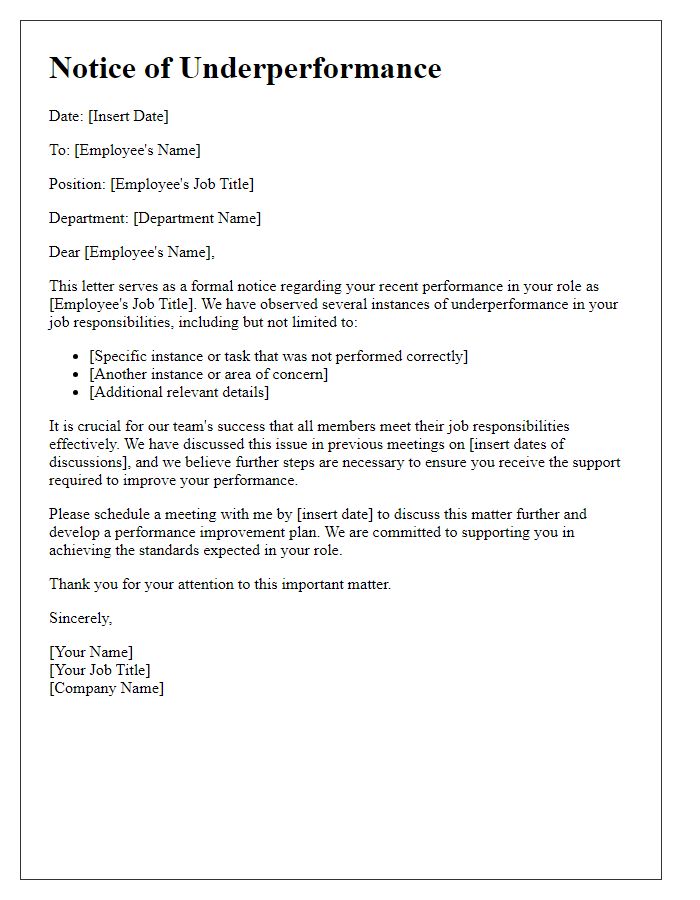


Comments